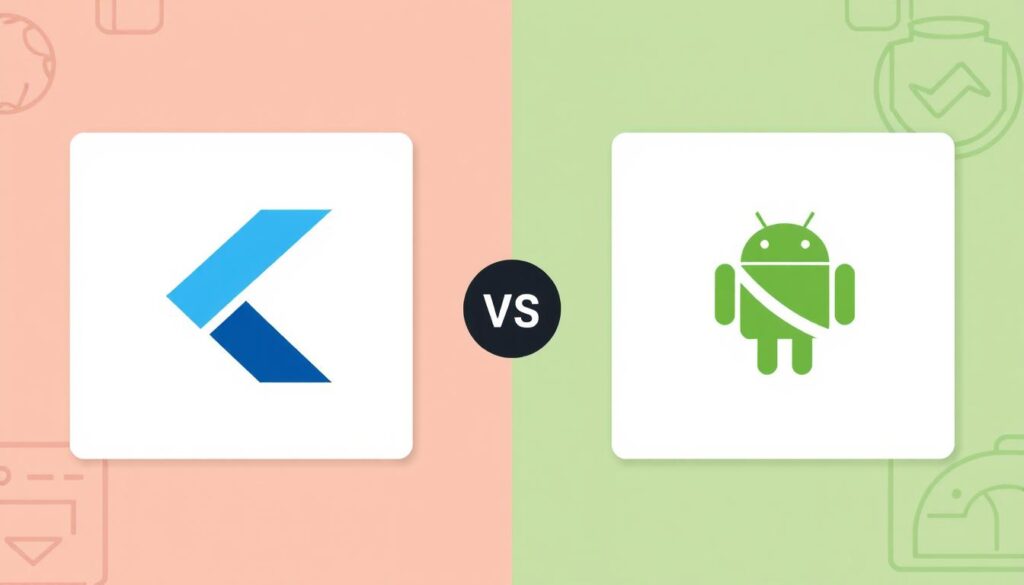If you’re stepping into the world of mobile app development, you’ve likely come across two popular terms: Flutter and Android Studio. Although they often appear together in tutorials and tech discussions, they serve very different purposes. In this article, we’ll break down the differences between Flutter and Android Studio, help you understand their roles, and guide you on when to use which.
What is Flutter?
Flutter is an open-source UI toolkit developed by Google. It allows developers to build natively compiled applications for mobile, web, and desktop using a single codebase. Flutter uses the Dart programming language and provides a rich set of pre-designed widgets.
Key Features of Flutter:
- Cross-platform development (Android, iOS, Web, Desktop)
- Uses Dart language
- Offers a hot reload feature for fast testing
- Comes with custom widgets for high-performance apps
- Backed by Google and has a growing developer community
What is Android Studio?
Android Studio is the official IDE (Integrated Development Environment) for Android app development, also developed by Google. It is based on IntelliJ IDEA and is designed specifically for building native Android apps.
Key Features of Android Studio:
- Powerful code editor and debugging tools
- Integrated emulator for testing apps
- Support for Java, Kotlin, and C++
- Built-in support for Gradle-based builds
- Strong integration with Firebase and other Google services
Flutter vs Android Studio – Core Differences
| Feature | Flutter | Android Studio |
| Type | Framework | IDE |
| Purpose | Cross-platform app development | Native Android app development |
| Programming Language | Dart | Java, Kotlin, C++ |
| UI Components | Custom Flutter Widgets | Native Android XML Layouts |
| Platform Support | Android, iOS, Web, Desktop | Android only |
| Hot Reload | Yes | Limited |
| Learning Curve | Moderate (Dart required) | Moderate to steep |
| Performance | Near-native | Native |
| Flexibility | Write once, run anywhere | Full control of Android platform |
Is Flutter Used in Android Studio?
Yes! In fact, many developers use Flutter with Android Studio. Android Studio supports Flutter through a Flutter plugin, allowing you to:
- Create Flutter projects
- Use the Flutter and Dart SDK
- Access code suggestions, debugging, and emulators
- Use Android Studio’s powerful tools to develop Flutter apps
So while Android Studio is an IDE, Flutter is the framework – they can and often do work together.
When to Use Flutter
Use Flutter if:
- You want to build apps for multiple platforms (iOS, Android, Web, Desktop)
- You prefer faster development cycles using hot reload
- You are comfortable learning Dart
- You want consistent UI across all devices
When to Use Android Studio (Without Flutter)
Use Android Studio alone if:
- You’re building a native Android-only app
- You need full access to Android hardware APIs
- You prefer working with Java or Kotlin
- You want deep control over Android SDK and system components
Flutter vs Android Studio – SEO Keywords Overview
If you’re writing about this topic or targeting the right audience, here are some high-intent keywords to include:
- Flutter vs Android Studio
- Difference between Flutter and Android Studio
- Flutter or Android Studio for app development
- Which is better Flutter or Android Studio
- Flutter plugin for Android Studio
- Cross-platform app development tools
- Flutter development environment
Final Thoughts
To summarize:
- Flutter is a framework for building cross-platform apps using Dart.
- Android Studio is an IDE for building Android apps using Java/Kotlin.
- They serve different roles but can also work together for Flutter development.
Your choice between the two depends on your project requirements, target platforms, and preferred programming language.
Conclusion
Flutter vs Android Studio is not a battle of which is better – it’s about using the right tool for the right job. If you’re targeting multiple platforms, Flutter is a great pick. If you’re focused solely on Android, Android Studio gives you complete control.
No matter which path you choose, both tools are powerful and backed by Google, giving you the confidence to build robust and beautiful apps.



